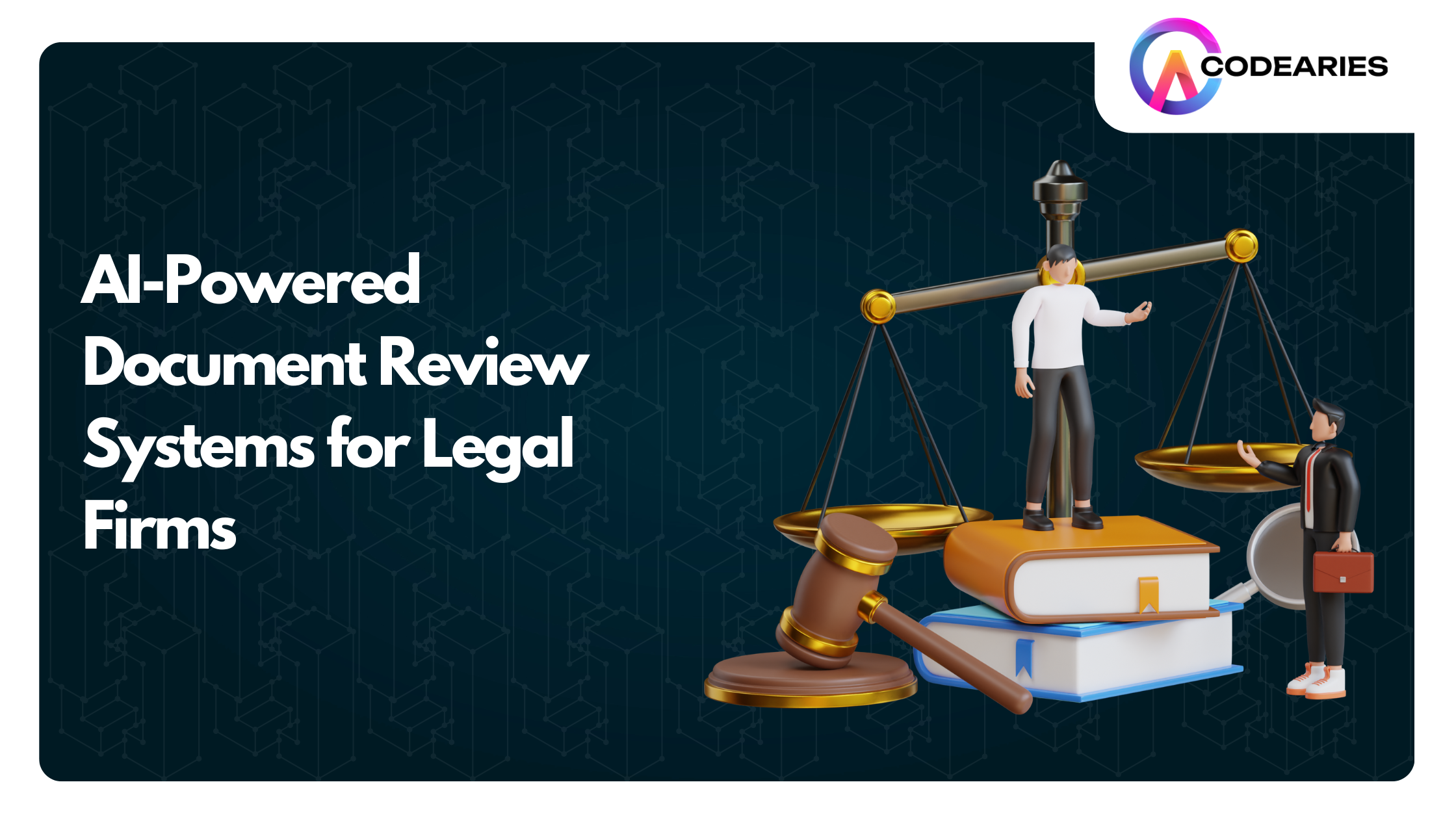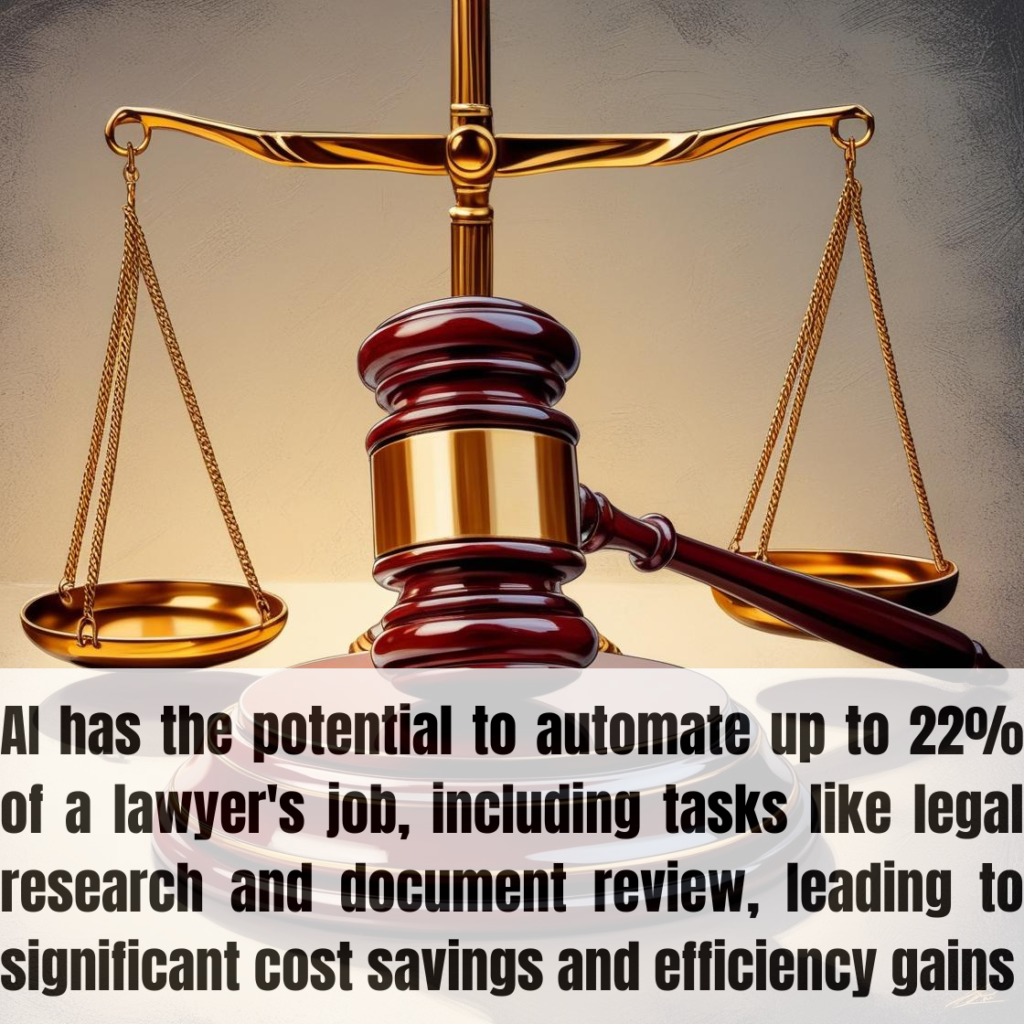
Legal firms are not just embracing technology—they’re relying on it. AI-powered document review systems are the shining stars of this transformation, reshaping how law firms handle the overwhelming volume of documentation they face daily. These systems bring more than efficiency; they empower legal professionals to work smarter, not harder.
From streamlining routine tasks to uncovering crucial insights hidden within mountains of data, AI systems are turning what once felt like a marathon into a sprint.
Ready to explore how these systems can make your legal practice faster, sharper, and more competitive? Let’s dive in.
The Role of AI in Modern Legal Practice
Imagine combing through hundreds of pages of contracts, legal briefs, and compliance documents in record time—with zero compromise on accuracy. Sounds like a dream? That’s precisely what AI brings to the table.
By integrating artificial intelligence into document review, legal firms can automate repetitive tasks, enhance accuracy, and uncover potential risks or opportunities that might otherwise be missed. The result? A reimagined approach to law where time is saved, clients are happier, and firms gain a competitive edge.

Understanding AI-Powered Document Review Systems
These systems are powered by cutting-edge technologies like natural language processing (NLP) and machine learning, making them capable of reading and understanding legal documents much like a human—only faster and more reliably.
- Natural Language Processing (NLP): Translates complex legal jargon into actionable insights.
- Machine Learning: Learns from previous document reviews to continuously improve.
- Optical Character Recognition (OCR): Converts scanned paper documents into searchable, editable Text.
These tools aren’t just helpful—they’re transformative, replacing tedious manual processes with automated efficiency.
Why Legal Firms Are Adopting AI-Powered Document Review Systems
Legal professionals often face the daunting challenge of reviewing endless stacks of documentation. Errors can lead to costly consequences, and time is a luxury most firms don’t have. Enter AI, offering a host of benefits:

Unmatched Accuracy: AI doesn’t just check for grammatical errors—it identifies inconsistencies, missing clauses, and potential risks, ensuring every document is watertight.
Time is Money—And AI Saves Both: Imagine cutting hours—or even days—off your review time. AI tools enable teams to process more documents in less time, freeing them up for high-value tasks.
Cost Efficiency: Think about the time saved by automating mundane processes. That’s Money back in your pocket.
Boosted Client Confidence: When clients see faster results and error-free work, trust builds naturally, strengthening relationships and securing long-term loyalty.
Features of AI-Powered Document Review Systems That Legal Firms Love
- Instant Search: Locating key clauses or terms within a massive contract takes seconds.
- Automated Risk Analysis: AI flags problematic clauses or terms that could lead to disputes.
- Summarization: Long-winded contracts or case files are distilled into concise, actionable summaries.
- Scalability: AI scales effortlessly when reviewing ten documents or 10,000.
Applications of AI in Legal Document Review
Artificial Intelligence (AI) is revolutionizing the legal industry, particularly document review, by improving efficiency and accuracy. Key applications include:
Document Review and Analysis
- Automated Document Assessment: AI quickly processes large documents, identifying crucial information and risks.
- Predictive Coding: AI predicts relevant documents based on human review patterns, reducing time and effort.
- Contract Scrutiny: AI extracts key clauses and ensures compliance with legal requirements.
- Due Diligence: AI identifies potential risks and liabilities during due diligence.
E-Discovery
- Data Filtering: AI reduces irrelevant data, focusing on the most critical documents.
- Document Clustering: AI groups similar documents, revealing patterns and trends.
- Smart Searching: AI-powered searches quickly find relevant documents using keywords and concepts.
Legal Research
- Automated Research: AI analyzes case law and regulations to identify relevant precedents.
- Outcome Prediction: AI predicts case outcomes based on historical data.
Legal Drafting and Writing
- Document Generation: AI creates standard legal documents based on templates.
- Language Processing: AI ensures accuracy in legal language.
Client Interaction and Collaboration
- AI Chatbots: Handle client queries and routine tasks.
- Team Collaboration: AI improves communication and workflow among legal teams.
AI enhances legal document review, saves time, reduces costs, and improves decision-making while complementing human expertise.
Overcoming Challenges: Smart Strategies for Implementation
- Start Small: Test AI tools on manageable projects before full-scale adoption.
- Invest in Training: Empower your team to use AI effectively with comprehensive training.
- Partner with Experts: Choose a vendor that understands the unique needs of legal firms.
- Monitor ROI: Regularly assess performance to ensure the system delivers as promised.
The Future of AI in Legal Document Review
The future of AI in legal document review is set to transform the industry through enhanced accuracy, efficiency, and expanding applications:
Enhanced Accuracy and Efficiency
- Advanced Language Models: AI like GPT-4 will improve legal language comprehension for more accurate document analysis.
- Real-time Collaboration: AI tools will facilitate faster, more efficient collaboration among legal teams.
- Predictive Analytics: AI will better predict legal risks, helping lawyers address issues proactively.
Expanding Applications
- Contract Negotiation: AI will analyze contract terms, identify risks, and suggest improvements.
- Regulatory Compliance: AI will automatically monitor and ensure compliance with changing regulations.
- Legal Research: AI will provide faster, more accurate legal insights.
Ethical Considerations and Human-AI Collaboration
- Bias Mitigation: AI development will focus on reducing biases for fairness.
- Human Oversight: AI will support, not replace, human expertise, ensuring ethical decision-making.
- Augmented Intelligence: AI will enhance human capabilities, allowing lawyers to focus on higher-level tasks.
AI is set to revolutionize legal document review, empowering legal professionals with faster, more informed decision-making.
Conclusion
AI-powered document review systems are not just tools—they’re revolutionizing the legal industry. By automating mundane tasks, enhancing accuracy, and delivering faster results, they empower legal professionals to focus on what truly matters: serving their clients better.
The question isn’t whether you should adopt AI but how quickly you can start reaping its benefits. Dive in, explore the possibilities, and transform your practice today.
FAQs
Is there an AI tool to create legal documents?
Yes, AI tools like LawGeex, DocuSign Insight, and Rocket Lawyer help automate the creation of legal documents such as contracts and agreements by filling in templates and ensuring legal compliance.
What is legal document review using AI?
AI in legal document review uses algorithms to quickly analyze and assess large volumes of documents. It identifies key clauses, flags risks, and ensures compliance, saving time and reducing errors in tasks like due diligence and contract analysis.
What is the best AI chatbot for legal writing?
LegalRobot and Ross Intelligence are top AI chatbots for legal writing. They assist with drafting, analyzing contracts, and ensuring accuracy in legal texts by using natural language processing.
Is there a legal AI bot?
Yes, DoNotPay is a popular legal AI bot that helps with tasks like disputing tickets and drafting simple contracts. Clio also offers AI-powered tools for law firms to streamline operations and client communication.


